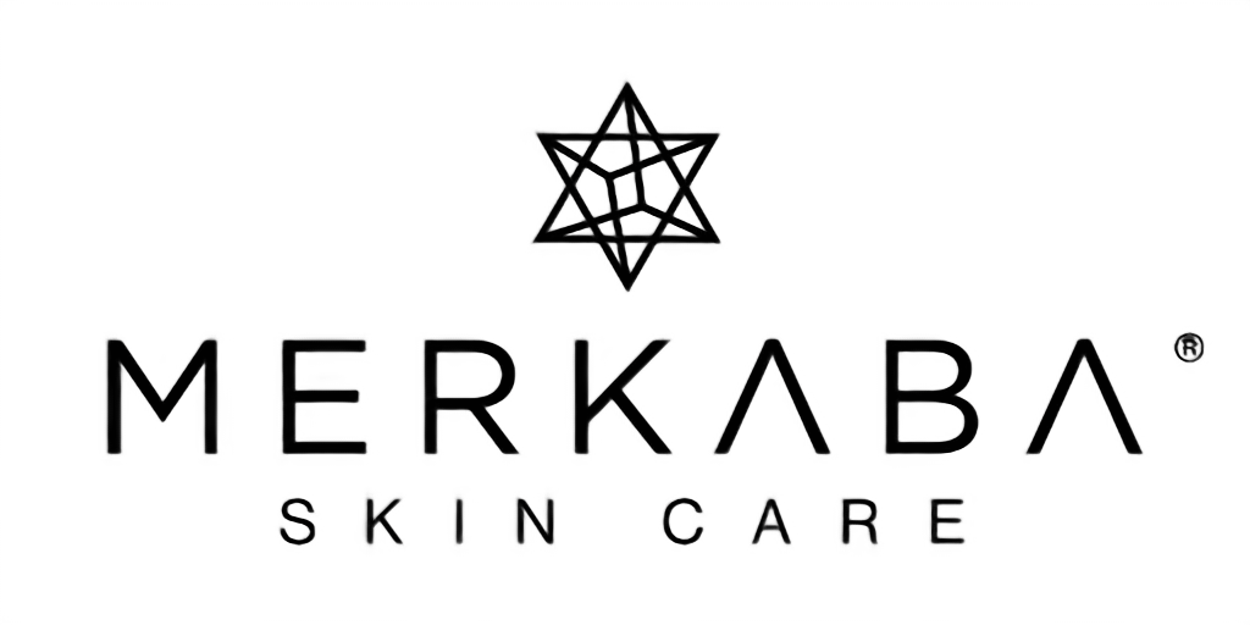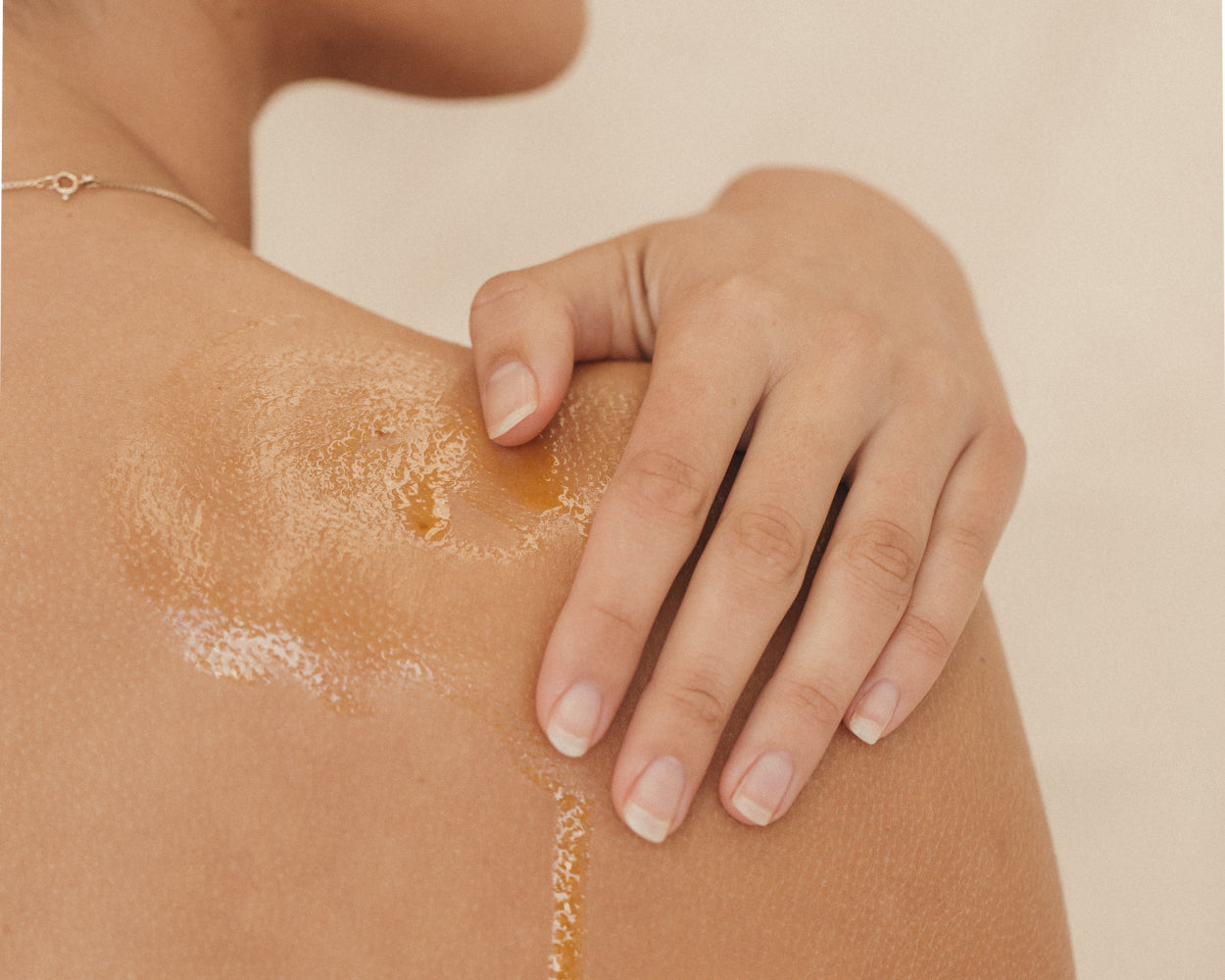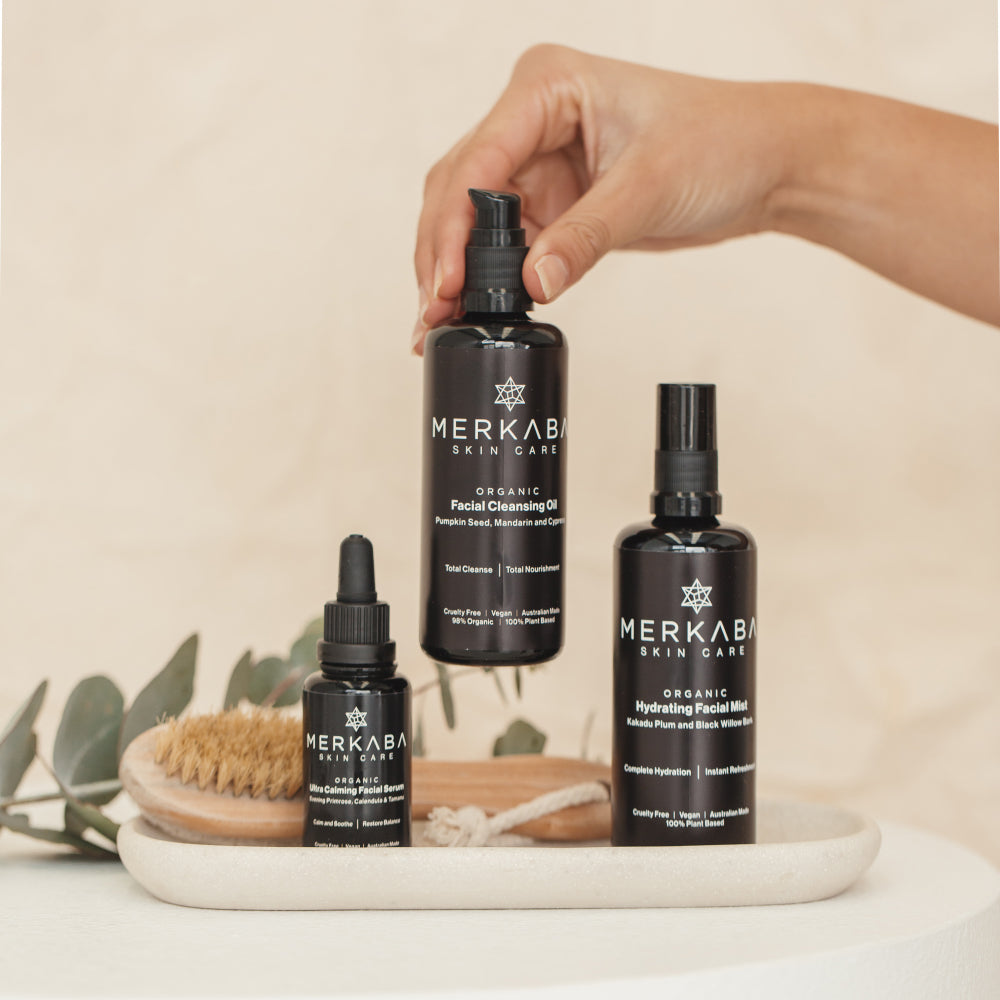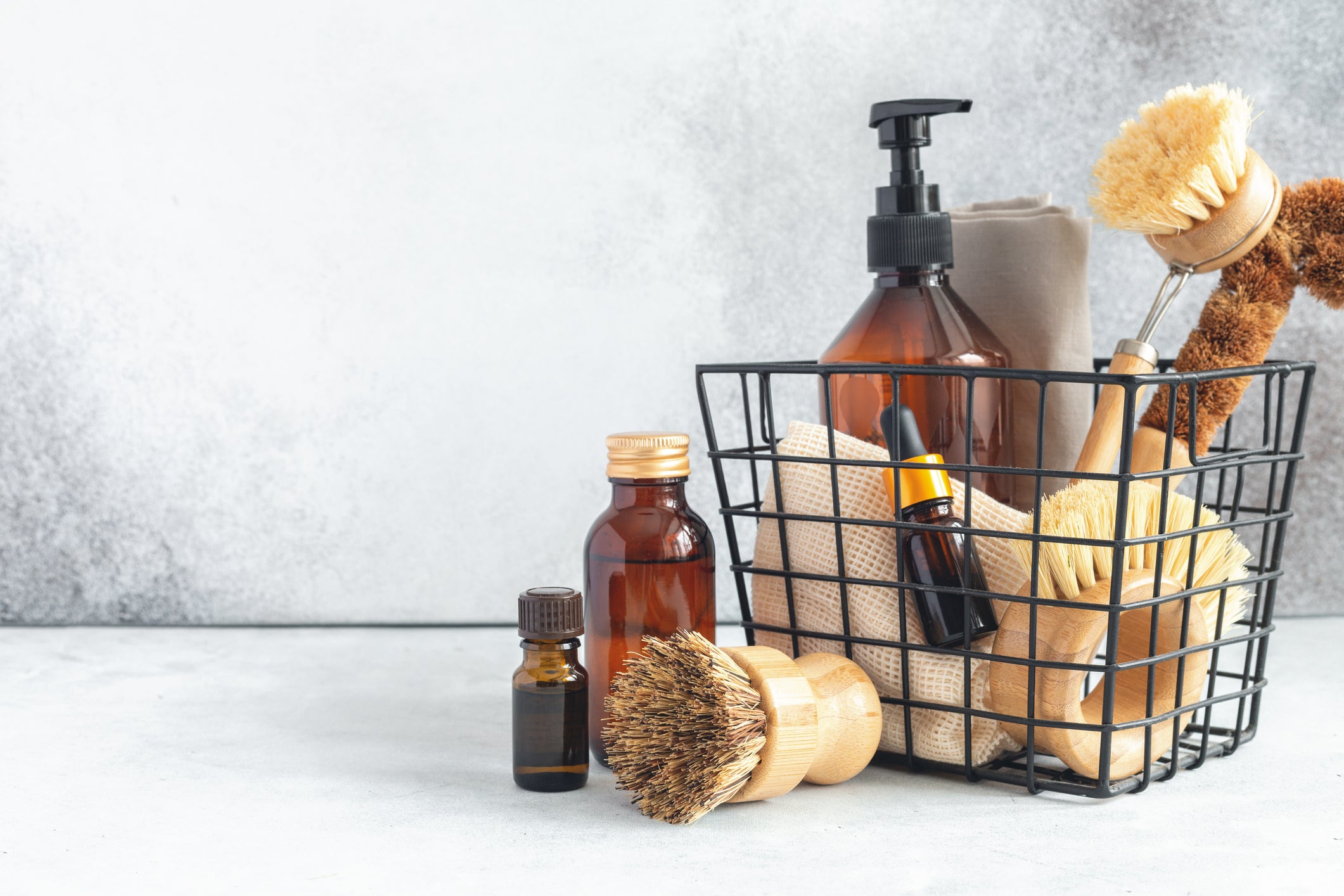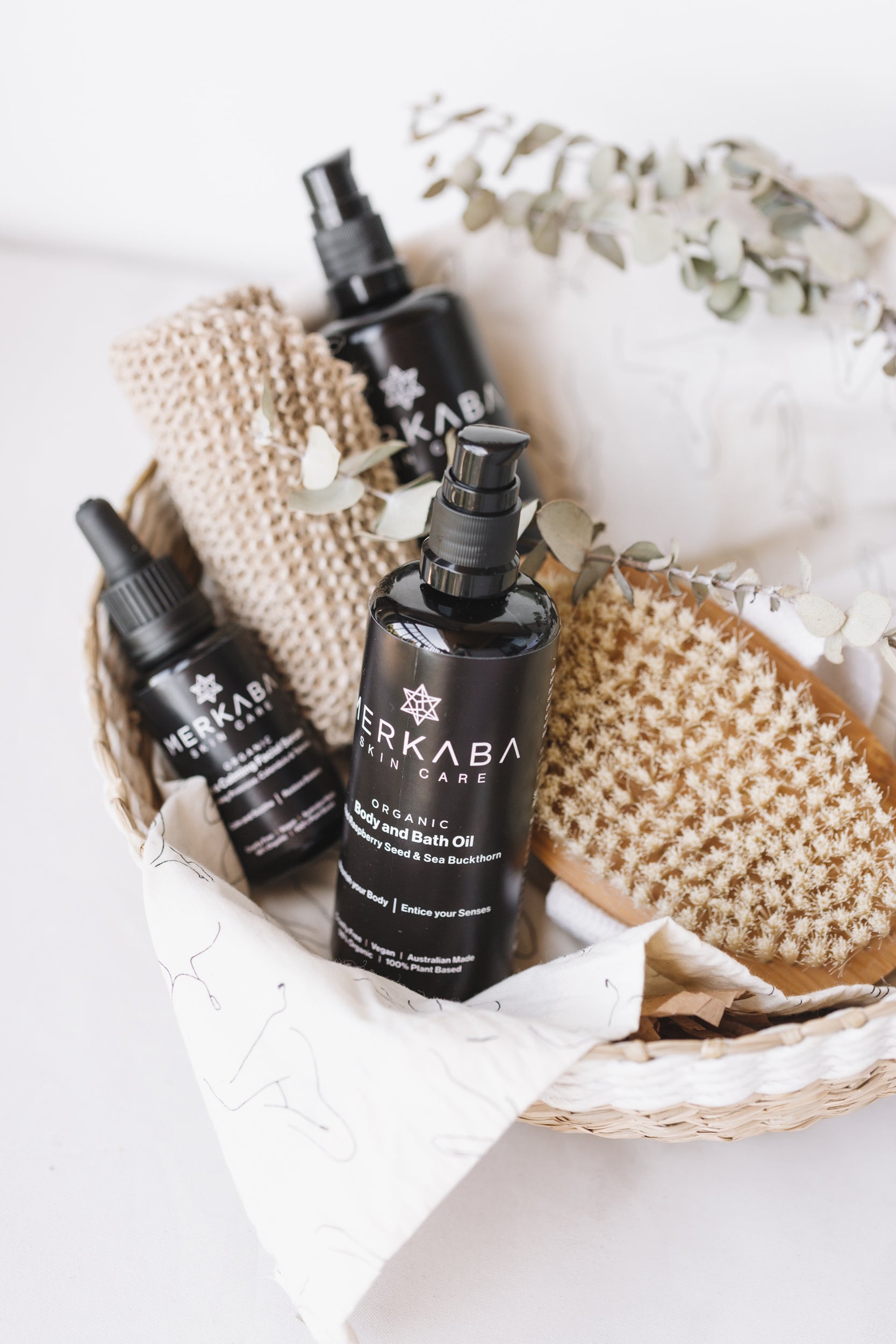
Skin nourishment from the inside out
Your skin is an external reflection of how your body is functioning internally due to the intimate relationship between your skin and the rest of your body. Fueling your body with nourishing foods that support a healthy gut, digestion, immunity and cellular repair will not only assist to maintain optimal health on the inside, but will also mirror what's happening on the inside, by rewarding you with a healthier, more radiant complexion.
We've put together the ultimate guide to feeding your skin through your diet and which foods to embrace to achieve your inner and outer glow.
1. HEALTHY FATS
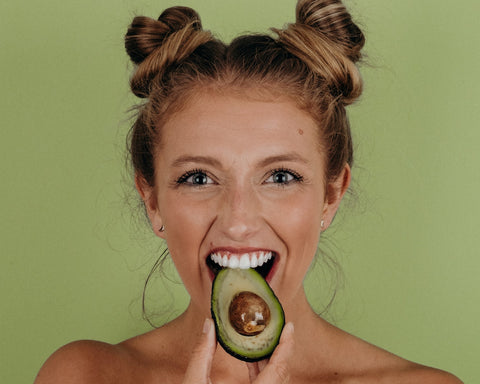 Fat forms the nutritional building blocks of our cell membranes and, contrary to past beliefs, is vital for the optimal health of every cell in our body. Omega 3 essential fatty acids are necessary for skin barrier integrity, helping to keep harmful substances out, and locking elements, such as water and nutrients in. This means well nourished and well hydrated skin cells, which translates into softer, radiant and healthier skin. Since our bodies are not capable of synthesizing these acids themselves, it is important to include them in our diets.
Fat forms the nutritional building blocks of our cell membranes and, contrary to past beliefs, is vital for the optimal health of every cell in our body. Omega 3 essential fatty acids are necessary for skin barrier integrity, helping to keep harmful substances out, and locking elements, such as water and nutrients in. This means well nourished and well hydrated skin cells, which translates into softer, radiant and healthier skin. Since our bodies are not capable of synthesizing these acids themselves, it is important to include them in our diets.
Choose high quality, organic where possible, omega 3 fatty acids such as avocados, olive oil, grass fed meat, butter and ghee, wild caught salmon, sardines, chia seeds and flaxseed. Avoid polyunsaturated omega 6 fatty acids such as canola, sunflower and safflower oils as these fats are more inflammatory in nature and often contribute to skin conditions such as acne, eczema, dermatitis, rosacea and premature aging.
Try the following smoothie loaded with healthy fats for radiant glowing skin.
FAT BOMB SMOOTHIE
Serves 2 - 3
300 ml coconut cream
100 ml yoghurt or kefir
1/2 avocado
1/4 cup of blueberries
1 egg
1 tablespoon coconut or MCT oil
Handful of macadamia nuts
Handful of spinach
1 tablespoon collagen powder (optional)
Add all ingredients to a blender and blitz until smooth. May add filtered water until desired consistency and blitz again.
Pour into glasses and serve immediately.
2. PRE AND PROBIOTICS
A diverse skin ecosystem of microorganisms, protecting the body from harmful pathogens and environmental stressors and supporting skin immunity is considered to be a key component in keeping your skin healthy and resilient.
When this microbiome is balanced and thriving, also referred to as symbiosis, our skin flourishes. But if we experience dysbiosis, where this ecosystem becomes disrupted through poor food choices, we often see various skin conditions emerge such as accelerated aging, psoriasis, acne and rosacea.
Foods that undergo the fermentation process can offer healing and restoration to the gut, and subsequently the skin, by rebalancing this ecosystem with targeted bacteria.
Aim to add powerful prebiotics to your diet in the way of asparagus, garlic, onions, beans and leeks. These provide fuel for the probiotics and other good bacteria in our gut. Probiotics work by creating the right conditions for healthy gut bacteria to survive, preventing the overgrowth of pathogens. Try to include a diverse range of these fermented foods such as sauerkraut, milk kefir, yoghurt and miso.
3. COLLAGEN
Collagen is an abundant protein found in the human body, especially in the skin, bones and connective tissues and sometimes referred to as 'the glue that holds our bodies together'. 75-80% of our skin is made up of collagen, providing structural strength and elasticity and building strong, resilient skin cell walls. The body's ability to produce collagen naturally decreases as we age, but poor diet, as well as other environmental and lifestyle factors can also inhibit collagen production.
This decrease in collagen production can be addressed by adding it to your diet to improve the skin's elasticity, strength and hydration. Some of the best natural food sources include bone broth from animal products, gelatinous and organ meats or by supplementation such as this formulation which can easily be added to smoothies, soups, sauces, coffee, tea and even bliss balls and baked goods.
Bone broth, nature's ultimate multivitamin and mineral supplement, does wonders, not only for your skin health, but your overall gut health as well. Making this magical elixir yourself is a cost effective way of obtaining this vital protein.
When slow cooked as in this recipe, this succulent and rich protein source creates a potent anti-inflammatory and immune-boosting dish that’s brimming with essential minerals including calcium, magnesium and phosphorous. Remember to choose good quality bones sourced from grass fed animals as they contain a healthier fat profile.
NOURISHING BONE BROTH
Makes approximately 4 litres
About 3.5 kg beef bones (marrow, knuckle, meaty rib and neck bones)
3 tablespoons apple cider vinegar
2 onions, roughly chopped
2 carrots, roughly chopped
2 stalks celery, roughly chopped
2 bay leaves
Fresh herbs such as thyme, oregano, parsley or sage
1 teaspoon black peppercorns
Place bones in a large roasting pan and roast in oven for 30 - 40 minutes until well browned.
Remove from the pan and place in a large stock pot along with any juices. Add vinegar, vegetables, herbs and peppercorns.
Add filtered water, ensuring the bones and vegetables are well covered.
Place over high heat and bring to a gentle boil. Reduce heat to a very slow simmer, pop the lid on, and simmer for 12 - 24 hours, skimming scum and excess fat occasionally. Add more water if necessary to ensure bones and vegetables are fully submerged.
Allow to cool, then strain into a large container, cover and place in the fridge overnight.
Remove solidified fat from the top (this may be reserved for cooking).
Transfer the broth to glass jars or containers and place in the fridge (for 3 - 4 days) or the freezer for up to 3 months.
NB: By slow cooking, the collagen in the bones is broken down to gelatin. This contains the amino acid, glycine which enhances our stomach acid secretions and restores a healthy lining to the stomach. Gelatin also absorbs water, keeping the digestive tract healthy as well as promoting good intestinal and bowel health. This all equates to optimal skin health.
4. ANTIOXIDANTS
These skin-loving superheroes scavenge for free radicals which are caused by environmental pollutants, toxins and your body’s own internal metabolic processes. Free radicals cause inflammation, speed up cellular aging and promote the breakdown of collagen and elastin, which ultimately leads to wrinkles. To prevent this oxidative damage, it's essential to get adequate amounts of antioxidants. Here are a few that have been proven to be particularly powerful and their best food sources.
VITAMIN A
This potent antioxidant, fights free radicals, promotes the growth of healthy new skin cells and strengthens the skin. It can be found in cod liver oil, liver, pasture raised egg yolks, organic grass-fed butter. For plant-based sources, look for vegetables that contain provitamin A (beta-carotene, which is converted into vitamin A in your body) such as carrots, red capsicum, beetroot and sweet potatoes. Dry or flaky skin could be a sign of deficiency in vitamin A.
VITAMIN C
Vitamin C, a powerful free radical scavenger, is crucial for collagen synthesis, tissue repair and growth and boasts skin lightening properties. Great sources are oranges, kiwi fruit, broccoli, brussel sprouts, kale, spinach, cabbage, tomatoes and blueberries.
VITAMIN E
This power-packed ingredient has also been proven to boost collagen production as well as aid in healing hyperpigmentation. Vitamin E can be found in cod liver oil, olive oil, sunflower seeds, almonds, avocado, citrus and broccoli. Avoid polyunsaturated oils such as canola, sunflower and soybean oils which use up vitamin E.
ZINC
This essential trace element boosts immune function, is involved in wound healing, the formation of new collagen, and it plays an especially important role in minimising the inflammation that causes acne. Many people are deficient in zinc which means that their ability to repair damaged skin becomes impaired. Good food sources include oysters, grass fed beef, crab, legumes, hemp seeds, flax seeds, pumpkin seeds, cashews and chickpeas.
CURCUMIN
The active ingredient in turmeric, curcumin is a powerful anti-inflammatory and antimicrobial that has long been used internally and externally. It decreases inflammation at the cellular level, speeds up wound healing and fights free radicals. Add turmeric to soups and stews or try this golden milk to incorporate more of this healing spice into your diet.
5. WATER

Water makes up a large component of every cell in our body and as a result, our organs, including the skin, require adequate hydration to maintain peak performance.
Dehydration causes skin to lose it's elasticity due to a lack of cell flexibility, resulting in dry, flaky skin which is more prone to wrinkles and premature aging.
